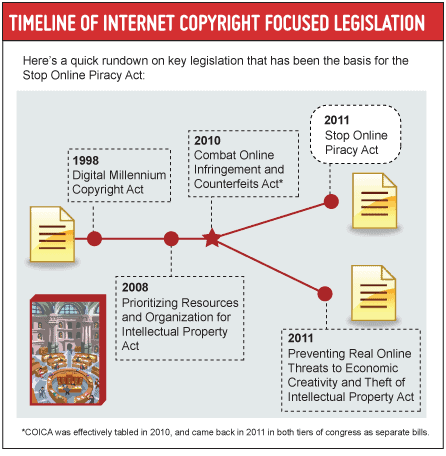The Stop Online Piracy Act (SOPA) is also known as H.R. 3261. It was introduced in the House of Representatives on October 26, 2011 by Lamar Smith [R-TX] and a bipartisan group of 12 initial co-sponsors. The bill is currently creating a lot of controversy in both the tech sector as well as the credit card processing industry because it expands the ability of U.S. law enforcement as well as copyright holders to fight online trafficking of copyrighted intellectual property and counterfeit goods. On its surface that sounds like a great thing. Generally, most people would not want to support piracy. But this bill is being debated so hotly because of the broad powers it gives law enforcement, as well as the powers it gives citizens themselves, to put stops on internet traffic. The law and its interpretation are open to abuse and misuse the way it is currently written. The bill is currently before the House Judiciary Committee.
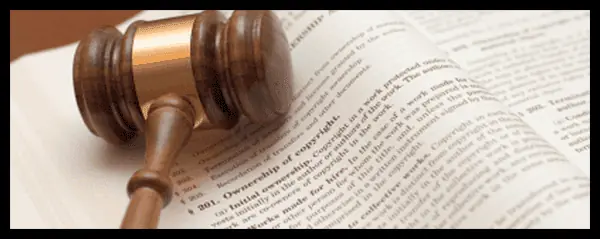
The History of the Law
This isn’t the first go-round in Congress for a bill of this nature. U.S. attempts to legislate copyright law and protect of intellectual property rights goes back to the Digital Millennium Copyright Act of 1998. The law implements two 1996 treaties of the World Intellectual Property Organization (WIPO) and criminalizes production and dissemination of technology, devices, or services intended to circumvent measures –– commonly known as digital rights management or DRM –– that control access to copyrighted works. The law also criminalizes the act of circumventing an access control, whether or not there is actual infringement of copyright itself. In addition, the DMCA heightens the penalties for copyright infringement on the Internet. Passed on October 12, 1998 by a unanimous vote in the United States Senate and signed into law by President Bill Clinton on October 28, 1998.
And SOPA itself is an extension of previous legislation. The Enforcement of Intellectual Property Rights Acts (S. 3325) –– which began its life as the Prioritizing Resources and Organization for Intellectual Property Act (PRO-IP) of 2008, H.R. 4279 –– was signed into law by then President George W. Bush on October 13, 2008. This law is essentially the groundwork for what SOPA is all about. The law permits the Department of Justice to conduct civil suits on behalf of copyright holders. This provision was initially removed from the bill, but then was approved unanimously in the Senate.
Prior to SOPA, lawmakers tried to take a bold step toward curbing copyright infringement with The Combat Online Infringement and Counterfeits Act of 2010 (S. 3804). The bill was introduced by Senator Patrick Leahy (D-VT) on September 20, 2010. It proposes amendments to Chapter 113 of Title 18 of the United States Code that would authorize the Attorney General to bring an in rem action against any domain name found “dedicated to infringing activities”, as defined within the text of the bill. Upon bringing such an action, and obtaining an order for relief, the registrar of, or registry affiliated with, the infringing domain would be compelled to “suspend operation of and lock the domain name.”
This attempt at giving the government broad and sweeping power to shut down websites that violated copyright law passed the Senate Judiciary Committee with a vote of 19-0 but never received a full vote on the Senate floor. Senator Ron Wyden (D-OR) announced he would take the steps necessary to halt COICA, effectively killing the bill. It was re-spawned in the Senate as the Preventing Real Online Threats to Economic Creativity and Theft of Intellectual Property Act (PROTECT IP) of 2011. And that law is essentially the Senate version of SOPA, as they attempt to do pretty much the same thing.
Seem confusing? Well here’s a short visual timeline to help you keep it all straight:
The Controversy Explained
In a nutshell, the controversy over SOPA is this: The debate pits members of Congress against two powerful interest groups –– the movie studios and recording industry which support SOPA and the rising internet giants that oppose it.
Supporters of the bill point to how much power it gives the government in terms of protecting intellectual property rights. They also cite how much weight it gives the U.S. in enforcing copyright against foreign websites.
Opponents to the bill cite the same broad sweeping powers and explain that the bill goes too far. It gives copyright holders the ability to enact action against website owners, search engine companies and payment network providers. The real scare is with the large hole the bill leaves for abuse based on how it was written.
Essentially a website can get reported for containing copyright violations. It can be reported by anyone. Then the site can be blacklisted and forced to shut down. A big concern is that sites that are largely above board and fit the spirit of the law, will get summarily shut down because user posted content could violate the law and reactions to such content would be deemed not enough to satisfy the law by anyone who investigates the report. It’s also pretty common in government for red tape to slow up the process. So sites can be quickly shut down for violations not of their own making. The site owner could police the action but still be found in violation. Or an error could be made. And the site is still shut down caught up in a slow process to clear the site’s name and get it reactivated.
Each hour that site is shut down it loses relevance on the internet. Drastically affecting the value and presence of the site.
Since the law includes search engines and payment network providers as well as site owners, the effects of a site being shut down can be sweeping, killing business from e-commerce sales, ruining page ranking, Search Engine Optimization, and basic search engine functionality. It’s a hot button issue that goes beyond just people fighting against piracy and preaching against censorship. The impact this can have on Payment Processors like Host Merchant Services, or search engines like Google, or social media outlets like Facebook can be potentially catastrophic. Giving people the power to abuse the system by getting sites blacklisted or shut down through all of the different avenues the legislation opens up for oversight, and then leaning heavily towards the influence of the interests that helped forge this bill –– the entertainment and music industries still stinging over Napster issues –– leave the growing and healthy business sector of E-Commerce vulnerable to backlash.
Google, Facebook, Yahoo!, Zynga and Twitter all teamed up to take out a full-page ad in the New York Times lobbying against SOPA for just that reason.
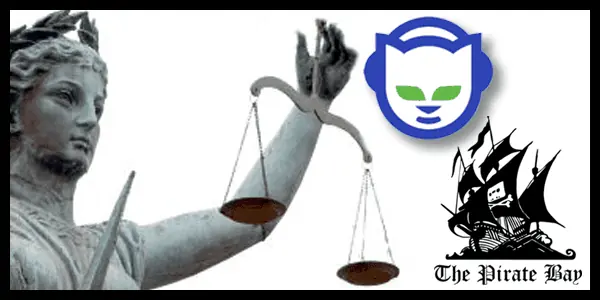
Support for SOPA
As mentioned, the primary source of support for the law comes from the entertainment industry. The film industry, which has long been taken advantage of through piracy, is fighting to curb the loss in revenue that comes from how easy the internet can make piracy happen. The music recording industry has been dug into the trench warfare over intellectual property rights for years now. As widespread as the battle with Napster was, the ease and availability of pirated music has only grown since then. These media sectors have a vested interest in what SOPA does. From their perspective it gives the government the power and teeth it needs to force regulation of copyright law and punish sites that turn a blind eye to the violations that cut into business. There’s a very real reason why a movie studio would not want its trailer leaked to the public months in advance, like what happened with both the trailer to the Dark Knight film and then again with the Dark Knight Rises film. Or even worse, an entire, and slightly unfinished film, Wolverine, was leaked online. That kind of piracy is what fuels the push for a law like SOPA.
It even goes beyond just movies and music. Video Game and other software companies are fighting against piracy as well. And now that comic book companies Marvel and DC Comics have started offering digital versions of their products, they too are suffering from the illegal distribution of their copyrighted material online.
Chris Dodd, former senator and president of the Motion Picture Association of America, was quoted at a Hollywood Chamber of Commerce meeting saying “There are those in the tech industry who hold the mistaken belief that there is nothing wrong with providing links to stolen content[…] I wonder if they would feel the same if their patents were stolen and used by others for profit?”
Maria Pallante, the U.S. Registrar of Copyrights, delivered testimony to the House Judiciary Committee supporting he legislation and stating that if “Congress does nothing, the “U.S. copyright system will ultimately fail.”
Lamar Smith stated when he pronounced the bill in October that it was needed because “Rogue websites that steal and sell American innovations have operated with impunity.” Smith, now caught up in the details of the bill, has since been found to back down off of his aggressive stance. He expressed uncertainty over allowing the Justice Department to obtain court orders demanding that American ISPs prevent users from visiting blacklisted websites. ISPs receiving such orders would have to alter records in the net’s system for looking up website names, known as DNS. And he said of the issue that “I’m not a technical expert on this. I’m trying to ferret this out.”
House Representative Bob Goodlatte [R-VA] called SOPA “a good bill.”
And Representative Mel Watt [D-NC] expressed some reservations, but said “doing nothing is not an option. Not only are online piracy and counterfeiting drains on our economy, they expose consumers to fraud, identity theft, confusion and to harm.”
John Clark, the security chief for Pfizer, came out strongly in support of the legislation and testified that counterfeit drug sales –– an area also covered by the bill, but kept mostly out of the debate in the media about the bill –– run rampant on the internet. Clark said he sees “counterfeited medicines as attempted murder.”
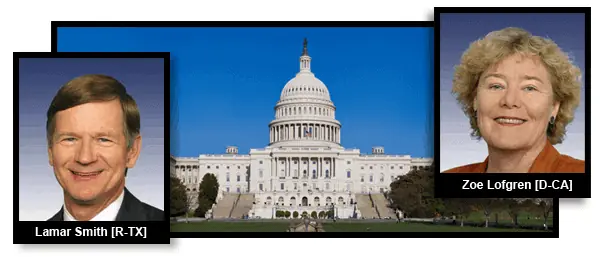
Congressional Resistance to the Law
Congresswoman Zoe Lofgren [D-CA] touched on the controversial nature of these kinds of laws at a town hall meeting in Santa Clara, CA on September 19, 2011, hosted by the State of the Net Group. This meeting was focused on the PRO-IP act in the senate as it predated SOPA. The point remains valid, however, as it touches on the nature of what has so many people who do business through the internet so worried about SOPA. Lofgren said “The attitude [in Congress] has been of resistance to technological change, and I think with that they are failing to take advantage of the opportunities that new technologies bring.” She went on to explain that the entertainment industry, or content people, that lobby so hard for this kind of legislation “have a legitimate interest but they have often not thought through the issues.” That day Lofgren stated one of the biggest concerns she has with the PROTECT-IP Act is the powers it would provide to tamper with the Internet itself. She cites the fact that it would enable court orders against third parties, most worryingly against search engines (who would required to remove hyperlinks to infringing websites) and ISPs or alternative DNS providers who would be required to block access to websites. This article from .nxt sums up the entire speech Lofgren gave and couches the issue of what has people worried in terms of internet governance.
Lofgren, one of the leading experts in Congress on the internet and tech industry, was not allowed to deliver statements during a House Judiciary Committee meeting on SOPA on November 16, 2011. She posted her statements in full on her own website here.
We’ll highlight just a few:
- “Section 102 creates an open-ended technical mandate on Internet service providers (ISPs) to block their users from accessing blacklisted websites. Unlike S. 968, the PROTECT IP Act, this mandate is not limited to domain filtering. Instead, the government may apply for a court order to impose any filtering measure upon ISPs, so long as it is deemed “technically feasible and reasonable.” Does this include the blocking Internet Protocol addresses? Deep packet inspection? New filtering technologies as they are invented? The bill does not say. “
- “Section 103 overturns critical safeguards in the Digital Millennium Copyright Act for cloud computing and any website that provides a platform for user-generated content. This includes everything from photo and video sharing to social networking, blogging, and beyond. Under Section 103, such websites will face a new legal risk that they will be terminated by their payment and advertising providers, based on an accusation that they are dedicated “to the theft of U.S. property.” This charge could be based upon infringement committed by a website’s users, and the DMCA safe harbor in 17 U.S.C. 512(c) cannot be used as a defense. “
- “Section 103 also allows a “portion of” a website to be deemed “dedicated to the theft of U.S. property,” regardless of the culpability of the website as a whole. Like many important terms throughout H.R. 3261, the precise meaning of these words is ambiguous, and will require years of expensive litigation to clarify. However, the plain meaning of the words seems to indicate that any large website could face a risk of termination by payment and advertising providers based solely upon infringing material contained in a single web page. “
- Lofgren even describes the legislation as a “draconian and one-sided approach” toward reaching a consensus between content creating industries and the technology industries that are the infrastructure of the internet.

The Possible Impact of the Legislation
The problem with SOPA that we keep coming back to is the ambiguous and open ended language combined with the broad powers it gives for enforcement. Though much of what we’ve looked at so far focuses on how it will impact search engines and individual sites, payment processors are included in this bill –– unlike other legislation such as COICA. If the bill passes in its current form there is room for abuse that could aversely affect merchant services providers, or as the government terms them in the legislation Payment Network Providers.
We’re going to provide you with direct quotes from the bill in the area of Payment Network Providers, and analyze exactly what they mean for payment processors as well as the Merchants who use them.
Section 102 of the Bill
Payment Network Providers are first mentioned in Section 102 of the Stop Online Piracy Act:
“SEC. 102. ACTION BY ATTORNEY GENERAL TO PROTECT U.S. CUSTOMERS AND PREVENT U.S. SUPPORT OF FOREIGN INFRINGING SITES.
(c) Actions Based on Court Orders-
(C) PAYMENT NETWORK PROVIDERS-
(i) PREVENTING AFFILIATION- A payment network provider shall take technically feasible and reasonable measures, as expeditiously as possible, but in any case within 5 days after being served with a copy of the order, or within such time as the court may order, designed to prevent, prohibit, or suspend its service from completing payment transactions involving customers located within the United States or subject to the jurisdiction of the United States and the payment account–
(I) which is used by the foreign infringing site, or portion thereof, that is subject to the order; and
(II) through which the payment network provider would complete such payment transactions.
(ii) NO DUTY TO MONITOR- A payment network provider shall be considered to be in compliance with clause (i) if it takes action described in that clause with respect to accounts it has as of the date on which a copy of the order is served, or as of the date on which the order is amended under subsection (e).”
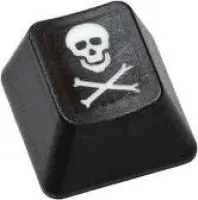
What this means is … payment processors notified by the Department of Justice have a set time frame by which they have to suspend their services for specific merchants –– specifically their websites –– that are found to support foreign countries infringing on copyrights or intellectual property rights. The far reaching extension of this law’s language is that payment processors have to shut down their operations on some of their customers’ sites if a violation is found. The simple purpose of this law would appear to be that it seeks to cut into the piracy operation at its most basic level. Foreign countries set up sites that take payments for materials that they do not have the copyright for, so the law shuts down that ability to take payment. But the law’s so broad that it opens up loopholes, wherein payment processors can be held accountable for violations their individual customers might not even be aware of –– such as copyrighted materials posted in a business’ message forums or feedback thread in a product review area.
Section 103 of the Bill
Payment Network Providers are also mentioned in Section 103 of the law. The first part they come up in is:
“SEC. 103. MARKET-BASED SYSTEM TO PROTECT U.S. CUSTOMERS AND PREVENT U.S. FUNDING OF SITES DEDICATED TO THEFT OF U.S. PROPERTY.
(b) Denying U.S. Financial Support of Sites Dedicated to Theft of U.S. Property-
(1) PAYMENT NETWORK PROVIDERS- Except in the case of an effective counter notification pursuant to paragraph (5), a payment network provider shall take technically feasible and reasonable measures, as expeditiously as possible, but in any case within 5 days after delivery of a notification under paragraph (4), that are designed to prevent, prohibit, or suspend its service from completing payment transactions involving customers located within the United States and the Internet site, or portion thereof, that is specified in the notification under paragraph (4).”

What this means is … pretty much the same as section 102, but instead it refers to domestic websites infringing on copyrights. Payment processors are again held accountable for the website content of their merchants. And if violations are found and the processor is notified, the processor must suspend payment processing services.
Further on in Section 103
And later in Section 103 Payment Network Providers are talked about:
“(d) Actions Based on Court Orders-
(2) REASONABLE MEASURES- After being served with a copy of an order pursuant to this subsection, the following shall apply:
(A) PAYMENT NETWORK PROVIDERS-
(i) PREVENTING AFFILIATION- A payment network provider shall take technically feasible and reasonable measures, as expeditiously as possible, but in any case within 5 days after being served with a copy of the court order, or within such time as the court may order, that are designed to prevent, prohibit, or suspend its service from completing payment transactions involving customers located within the United States or subject to the jurisdiction of the United States and any account–
(I) which is used by the Internet site dedicated to theft of U.S. property that is subject to the order; and
(II) through which the payment network provider would complete such payment transactions.
(ii) NO DUTY TO MONITOR- A payment network provider is in compliance with clause (i) if it takes action described in that clause with respect to accounts it has as of the date of service of the order, or as of the date of any subsequent notice that its service is being used to complete payment transactions described in clause (i).”

What this means is … Payment processors are not required to monitor their merchants’ websites. But they are required to take reasonable and fast action when they are served by the Department of Justice. This continues to create a sense of vagueness for the law. It’s not clear how payment processors are required to monitor their merchants’ website content, but they are still responsible for that content in terms of copyright violation.
In Conclusion
The Stop Online Piracy Act is coming under extreme fire from the tech industry sector. The language of the bill is very broad and gives the government a lot of power in terms of attempting to regulate the internet. It also places a lot of responsibility on the shoulders of search engines, social media outlets and payment network providers. With E-Commercebooming, and with all of the predictions being made about the expansion of online shopping and mobile payments, this legislation goes way beyond the debate about censorship and intellectual property rights. It now gets into the nuts and bolts of the infrastructure of the internet. The major media sources will most likely continue to oversimplify the issue and boil the debate down to Hollywood vs. Google. But the legislation is more complex than just that. It has some facets, such as Section 105 –– Immunity for Taking Voluntary Action Against Sites That Endanger Public Health –– which would not garner a whole lot of argument among people involved. In fact, that gets at the root of what John Clark of Pfizer had commented on when giving testimony before the House Judiciary committee; websites that endanger the public health are not something people will actively support.
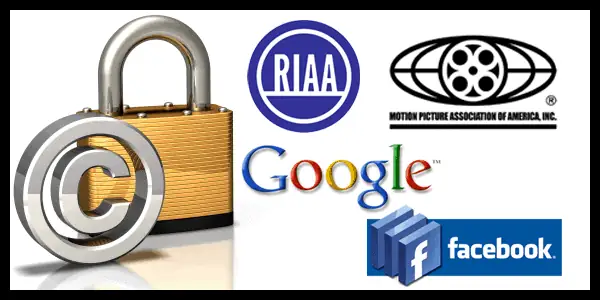
However the law is going to continue to face opposition as long as its language remains so broad and as long as it continues to leave things wide open for disrupting the day to day usage of the internet. Google as a company does not want to support piracy. No one does. But being held liable for policing piracy is just not something Google is going to support. Also, having Payment Network Providers like PayPal or Host Merchant Services shut down service to their merchants when the law itself is so open-ended will keep this law hotly debated and contested.
Much like it did with the Durbin Amendment, The Official Merchant Services Blog will be following the development of the Stope Online Piracy Act closely. It’s hard to make a prediction about its future. The failure of COICA in 2010 demonstrates that there are some members of Congress sympathetic to the tech industry’s side of the debate. That the 2010 bill came back as two bills –– one in the House and one in the Senate –– shows that the lobby in favor of expanding the ability of the Department of Justice to pursue and prosecute online piracy is still extremely strong. But Host Merchant Services is going to go out on a limb here and guess that come the 2012 election campaign, the issue of Online Piracy will once again get tabled in favor of easier to digest talking points and sound bytes that can be better pushed in front of the eyes of potential voters.
Read The Bill Word for Word
Host Merchant Services would also like to provide you access to the law itself. Click here to visit our resource page for SOPA and get a PDF of the law to download for your own use.

